Grants go to electric vehicle chargers in 7 Alabama counties
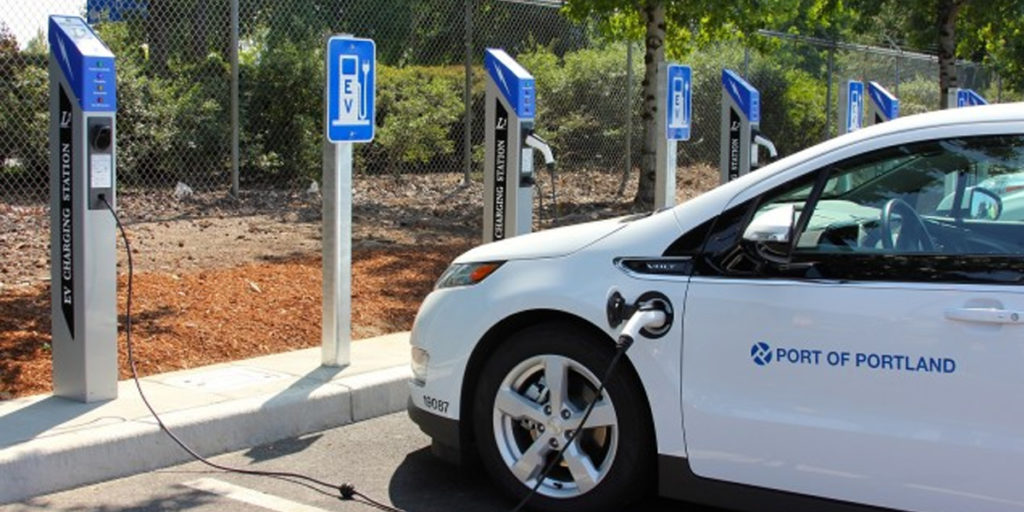
Money from a legal settlement will be used to provide funding to add charging stations for electric vehicles at 18 sites in seven Alabama counties. The governor’s office says grants totaling $4.1 million will help fund installing of chargers at fueling stations near interstates and other major highways. The money will provide as much as 80% of the cost of installing stations at existing sites in Jefferson, Tuscaloosa, Calhoun, Cullman, DeKalb, Greene, and St. Clair counties. Many of the chargers will be along Interstate 20 from the Georgia line to Tuscaloosa. The money is from a settlement involving Volkswagen and the Environmental Protection Agency over the automaker’s violation of the federal Clean Air Act. In a statement, Gov. Kay Ivey said the grants will help the state move toward electric vehicles. Auto plants located in the state already have started the transition toward vehicles powered by electricity, she said. “This program will have a range of positive impacts in Alabama from creating cleaner air to helping to sell more vehicles manufactured right here in Alabama,” said Kenneth Boswell, director of the Alabama Department of Economic and Community Affairs, which will administer the grants. Republished with the permission of the Associated Press.
Kay Ivey awards $17 million for broadband services in rural areas
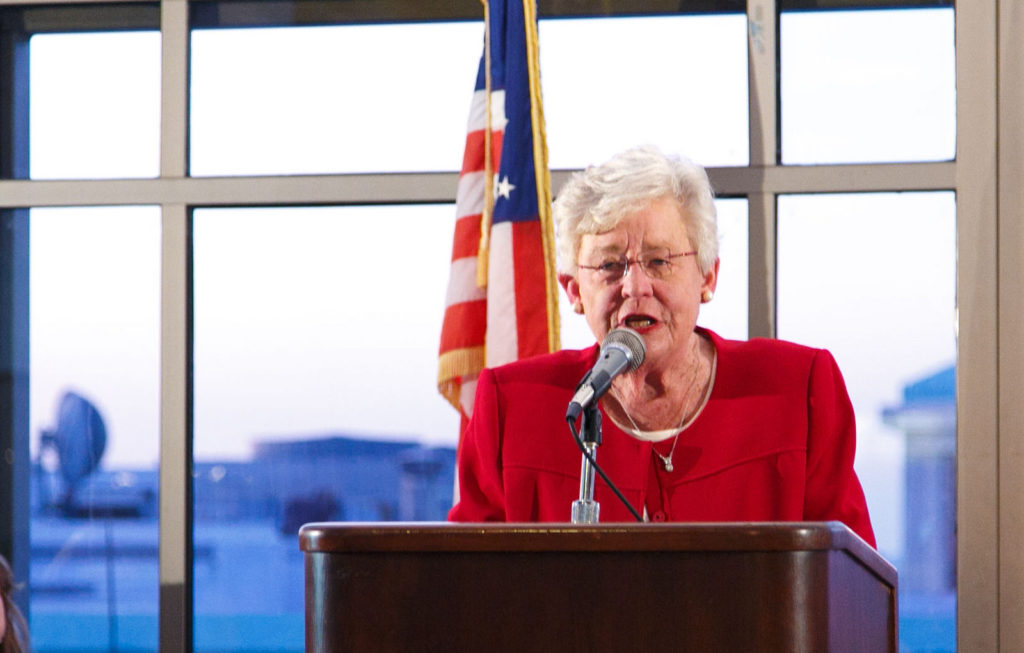
Gov. Kay Ivey has awarded nearly $17 million to help provide broadband services in primarily rural, unserved areas of Alabama. In a statement, she commented, “The COVID-19 pandemic reinforced what we already knew; that Alabama’s broadband coverage is an issue we must continue addressing. Yet, thanks to so many, we are making strides in helping to provide high-speed internet coverage throughout the state. That will make a vast difference for thousands in terms of education, economic development, health care services, and everyday life.” Ivey signed the Alabama Broadband Accessibility Act in March 2018. According to the Alabama Department of Economic and Community Affairs (ADECA) website, the funds are to help provide high-speed broadband services in unserved rural Alabama. Access to high-speed broadband services is important for economic development, education, health care, and emergency services. The fund will help extend services to households, businesses, and community anchors in areas of the state without adequate service. A community anchor usually refers to a public building like a town hall, fire or police department, school library, post office, or community center. The 36 grants awarded by Governor Ivey to multiple broadband providers across the state is the largest amount and number awarded to date from the Alabama Broadband Accessibility Fund. “Access to broadband can make all the difference in the world to a family or rural business whether it is a child being able to participate in a course not offered at their school or a farmer having to go online to order a piece of equipment vital to his operation,” ADECA Director Kenneth Boswell stated. “ADECA is pleased to join Governor Ivey in this program that is making real differences in the lives of Alabamians.” Kay Ivey stated on Twitter, “I’m pleased to award nearly $17 million to help provide broadband services in primarily rural, unserved areas of Alabama. These grants are made possible through the Broadband Accessibility Fund.” I’m pleased to award nearly $17 million to help provide broadband services in primarily rural, unserved areas of Alabama. These grants are made possible through the Broadband Accessibility Fund. #alpolitics @ADECA https://t.co/6K41pFXaqM — Governor Kay Ivey (@GovernorKayIvey) May 10, 2021 Grants awarded and coverage areas are: North Alabama JTM Broadband – $623,277 to supply internet access for 1,122 households, 32 businesses, and one community anchor in a 51-mile stretch near Lexington, Elgin, and Rogersville in Lauderdale County. Comcast Cable Communication – $453,032 to supply services to up to 540 households and five community anchors in Colbert County in vicinity of the town of Leighton and Nitrate City community. Tombigbee Electric Cooperative Inc. – $1.15 million to provide internet access for 770 households, 15 businesses and four community anchors in northeast Franklin County. Tombigbee Electric Cooperative Inc. – $1.26 million to supply internet access for 929 households, 25 businesses and one community anchor in southeast Franklin County. Tombigbee Electric Cooperative Inc. – $578,635 to provide internet service for 530 residences, 10 businesses and two community anchors in southwest Franklin County near Vina. Tombigbee Electric Cooperative Inc. – $556,678 to provide internet connectivity for 323 households and 10 businesses in the Spruce Pine area of Franklin County. Tombigbee Electric Cooperative Inc. – $324,072 to provide internet access for 227 households, 10 businesses and two community anchors near Hodges in Franklin County. Farmers Telecommunications Corp – $84,665 to provide internet access for 106 households in the Dutton area of Jackson County. Farmers Telecommunications Corp. – $116,593 to provide internet access for up to 122 households in DeKalb County in the areas of Lookout Mountain, Little River Canyon and Wade’s Gap. Spectrum Southeast (Charter Communications Inc.) – $25,966 to supply internet services for 20 residences in the Highland Drive area of the city of Arab in Marshall County. Cyber Broadband Inc. – $1.5 million to lay 86 miles of line that will provide internet access for 3,500 households, 50 businesses and 10 community anchors in the Breman and Cold Springs areas in Cullman County. Cyber Broadband Inc. – $1.5 million to provide internet access for up to 2,500 households and multiple businesses and community anchors in the Grandview and Logan areas of west Cullman County. Cyber Broadband Inc. – $581,615 to provide internet access for up to 550 household and 20 businesses in the Simpson Shores and Cold Springs Road areas in Cullman County. Spectrum Southeast (Charter Communications Inc.) – $84,072 to supply internet services for 109 households in the Bright Drive area of Blountsville in Blount County. Spectrum Southeast (Charter Communications Inc.) – $124,611 to provide internet access for 119 households in areas near the city of Jasper and the town of Dora in Walker County. Windstream Alabama – $56,534 to provide internet services to 17 households in St. Clair County in an area southeast of Springville. Windstream Alabama – $107,640 to supply service to up to 70 households and one business in an area north of Odenville in St. Clair County. Central Alabama Spectrum Southeast (Charter Communications Inc.) – $82,262 to provide internet access for 63 residences in the Beasley Road area of Gardendale in Jefferson County. Spectrum Southeast (Charter Communications Inc.) – $44,291 to provide internet access for 31 households southwest of the Fosters community in Tuscaloosa County. Coosa Valley Technologies Inc. – $1.5 million to provide internet access to 739 households, four businesses and three community anchors in an area encompassing part of east Talladega and west Clay counties near the communities of Ironaton and Chandler Springs. Roanoke Telephone Co. – $193,221 to provide internet accessibility to 150 households and two businesses in the Five Points area in Chambers County. Point Broadband Fiber Holding – $587,000 to provide broadband access capabilities to 316 households and 14 businesses in Chambers, Lee and Tallapoosa counties in the vicinity of the town of Waverly and U.S. Highway 280. Windstream Alabama – $117,161 to provide internet services to 43 households in an area south of the town of Camp Hill in Tallapoosa County. Point Broadband Fiber Holding – $71,612 to supply internet service 56 households in the Overlook Drive area southwest of the city of Dadeville in Tallapoosa County. Spectrum Southeast (Charter Communications Inc.)-
Kay Ivey awards COVID-19 recovery grants to four Alabama cities
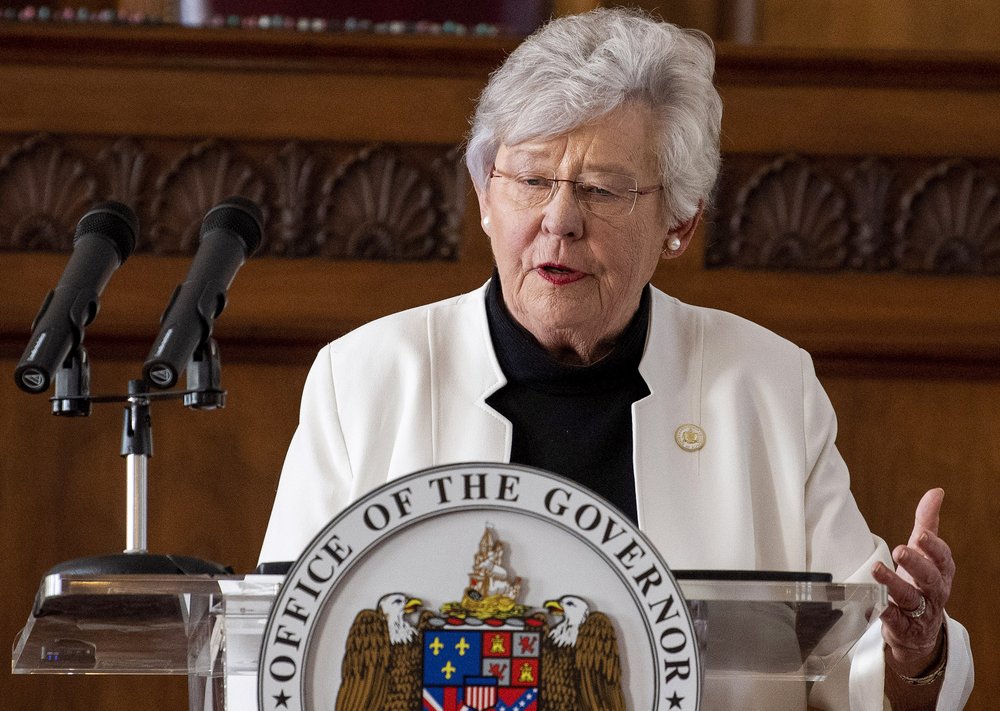
Governor Kay Ivey today awarded a total of $4.5 million to help four of Alabama’s most populous cities recover from the COVID-19 pandemic. $1.5 million each will go to the cities of Birmingham and Mobile and $750,000 each to the cities of Tuscaloosa and Decatur. On Twitter, Ivey commented, “I’m pleased to award $4.5 million to help four of Alabama’s most populous cities – Birmingham, Mobile, Tuscaloosa & Decatur – recover from the #COVID19 pandemic.” I’m pleased to award $4.5 million to help four of Alabama’s most populous cities – Birmingham, Mobile, Tuscaloosa & Decatur – recover from the #COVID19 pandemic. #alpolitics @ADECA https://t.co/KyJpI6OtiR — Governor Kay Ivey (@GovernorKayIvey) May 4, 2021 The money is from $40 million given to Alabama under the Coronavirus Aid, Relief and Economic Security (CARES) Act and was made available to the state by the U.S. Department of Housing and Urban Development. The funds can be used to support COVID-19 related issues like testing and vaccinations, rental, mortgage, and utility assistance, or assistance to food banks and pantries. The funding can also help with job creation, business assistance, and related projects to provide pandemic relief. “As Alabama continues to make progress to end this pandemic, these funds will help people in some of Alabama’s largest cities to rebound from COVID-19,” Governor Ivey stated in a press release. “I am pleased to award these funds and hope they will help these cities as they continue their recoveries.” Birmingham will use funds to supply food and health services to residents, aid the homeless, and improve virtual schooling for students. Mobile plans to use the funds to fortify food banks to help meet local needs, upgrade emergency equipment, improve health services for senior citizens, and provide legal services to residents to address fair-housing needs. The city of Tuscaloosa will rehabilitate an underutilized elementary school building and convert it into a community resource center. The city of Decatur will provide rental and utility assistance, assist small businesses with loans and improve fire and rescue equipment. Alabama Department of Economic and Community Affairs (ADECA) Director Kenneth Boswell commented, “These Alabama cities qualifying for this special CDBG Covid-19 relief assistance know their needs and have presented their plans for helping them get past this pandemic and to prepare for any major disruptions in the future. ADECA joins Governor Ivey in looking forward to working with these partnerships.”
Census shows Alabama will maintain 7 congressional seats
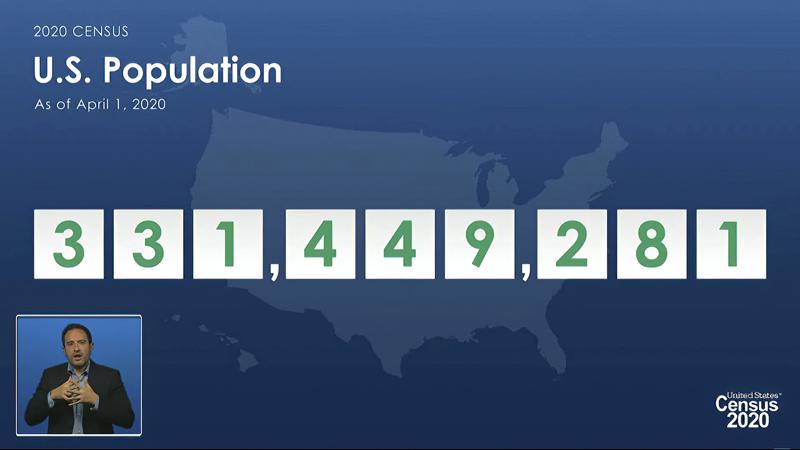
Alabama will maintain seven congressional seats under new Census numbers released Monday instead of losing a seat as state officials had feared. The outcome is a relief to officials worried that Alabama’s population growth would not be enough to maintain its seats in the U.S. House. A drop to six seats would have decreased Alabama’s influence in Washington and kicked off a particularly difficult redistricting process. The census figures show that Alabama’s population grew by about 5% since 2010 to a little over 5 million residents in 2020. Alabama’s population growth trailed the U.S. as a whole, which grew 7.4% “This data reveals what we’ve known all along – Alabama is a great state to call home, and many are choosing to do so. I am extremely pleased that we will keep all seven of our current seats in the U.S. House to provide valued and needed voices to advocate for our state and our people for the next 10 years,” Gov. Kay Ivey said in a statement. Ivey and other Alabama officials had made a push for state residents to participate in the 2020 census, saying an accurate count was crucial to keeping the state’s representation in Congress and the billions of dollars in federal funding handed out on a per capita basis. Ivey said she offers a “heartfelt thanks to everyone who played a part” in urging census participation. “This was by far the most time and resources that Alabama state government has ever given toward a census count, and I am happy that our efforts and hard work have paid off,” Kenneth Boswell, the chairman of the Alabama Counts! Committee to boost census participation, said in a statement. Republished with the permission of the Associated Press.
Kay Ivey awards Humane Society of Shelby County $50,000 grant to care for pets belonging to domestic violence victims

Gov. Kay Ivey has awarded over $50,000 in grant funding to help pets belonging to victims of domestic violence when their owners flee to safe shelters. According to ABC News, the governor’s office said the grant was awarded to the Humane Society of Shelby County Inc. in Columbiana. The Shelby SafePet program, which will help pet owners in Shelby, St. Clair, and Jefferson counties, was founded in May 2018 to protect animals caught up in family violence situations. According to the Shelby SafePet website, the purpose of the program is to, “assist survivors of domestic violence by partnering with organizations that provide emergency shelter, and creating a network of veterinarians and volunteers to care for animals while women and children find the support they need.” The program aims to help domestic violence victims because currently there are no shelter programs in Alabama that provide free veterinary care, food, boarding, and pet deposits for victims of domestic violence. Some victims choose to stay in violent homes when they learn they cannot take their pets with them when they leave. “Pets are a very important part of a family, but they’re often forgotten when family members have to escape a violent situation at home,” Gov. Ivey commented. “The Humane Society of Shelby County has worked diligently to ensure that pets receive proper care while their owners are staying in a domestic violence shelter. I am pleased to support this program.” The Alabama Department of Economic and Community Affairs is administering the grant through funds provided by the U.S. Department of Justice. ADECA administers an array of programs supporting law enforcement and traffic safety, economic development, energy conservation, water resource management, and recreation development. Matching funds of $13,000 will supplement the grant. “As a proud dog owner herself, Gov. Ivey is concerned about the welfare of pets during awful family situations,” ADECA Director Kenneth Boswell said. “ADECA is pleased to join the governor in support of this program.”
Alabama could lose House seat based on Census response

Alabama is in danger of losing at least one congressional seat based on its current response rate to the U.S. Census, officials said Tuesday. Kay Ivey, during a progress report on the state’s standing with the national head count, said the state’s current participation rate is 59.8%, or 2 percentage points behind the national average. While the state’s performance is better than that of some Southern neighbors, state Census leader Kenneth Boswell said Alabama would lose one of its seven U.S. House seats and possibly two if the counting ended now. Some $13 billion in annual federal funding for programs including school nutrition, health care, infrastructure, and housing also is at stake with the Census, which occurs every 10 years. With the push to promote the Census being affected by the coronavirus pandemic, the state has hired a publicity firm to help spread the word, Boswell said. Events are being planned including a “statewide day of action,” when employers will be asked to let workers complete the Census while on the job. Republished with the permission of the Associated Press.
Kay Ivey kicks off 2020 Census
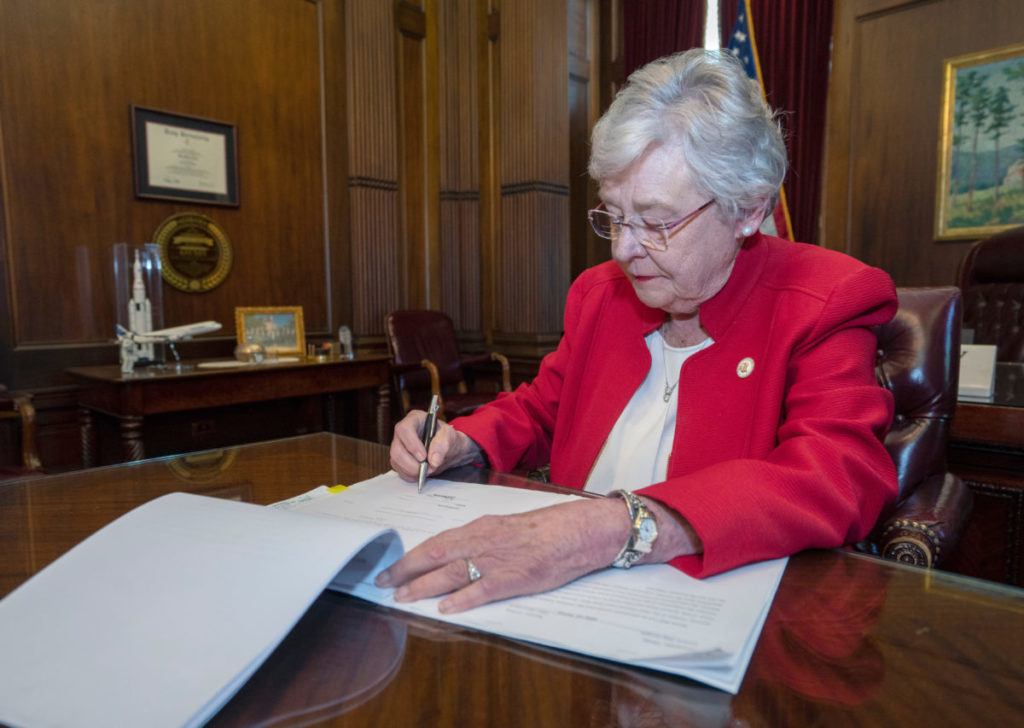
Governor Kay Ivey kicked off the 2020 census today with Alabama Counts! Chairman Kenneth Boswell, Senate Pro Tempore Del Marsh, House Speaker Mac McCutcheon, State Sen. Bobby Singleton, and Marilyn Stephens of the Census Bureau’s Atlanta Region Research. For the first time in the nations history, the Census is now live online at my2020Census.gov. Additionally, invitation letters have begun and will continue to arrive across the state through March 20. Alabamians can participate in the 10-question Census online, by phone or via traditional paper form. All participants’ information is protected by strict federal law. Ivey said, “Since I took office in 2017, it has been a priority to ensure Alabama is accurately counted in the census because of the significant impacts on our state in areas of congressional representation and critical federal funding. Whether you are filling out your census online at my2020Census.gov, answering by phone or on the traditional paper form, I urge everyone to be counted! The future of our state depends on Alabamians taking just a few minutes to participate in the 2020 Census.” According to the governors office, “Speakers reiterated what the state stands to lose if Alabama’s count fails to reach a maximum level and falls shy of the 72 percent participation rate in the 2010 Census. Potential low-participation effects including the loss of millions of dollars in Census-derived community funding, loss of potential economic development opportunities, and reduced state representation in Congress.” Chairman Boswell added he and 2020 Census Committee Members statewide encourage participation as soon as invitation letters are received and by April 30; however, there will be a second push for participation in the months following for those Alabamians who have yet to engage. “The impact of this census will be felt for 10 years, so it is imperative that we all do our part and participate for our children, grandchildren, communities and schools,” said Boswell, who is director of the Alabama Department of Economic and Community Affairs. “We are counting on all Alabamians to participate in the 2020 Census.” “The census asks very basic demographic information and only takes about six minutes to complete, so we encourage everyone living or staying in Alabama to complete the census as soon as you receive your invitation from the Census Bureau,” Boswell said. “By filling it out as soon as possible, you can fulfill your civic duty and help our state.” Additional information on Census 2020, Alabama-specific statistic, local community resources and Alabama Counts! campaign assets can be found at census.Alabama.Gov.
2020 census participation ‘critical’ for Alabama

With a congressional seat on the line 2020 census participation is “critical.”
Community Development Block Grants awarded to help improve 54 communities statewide
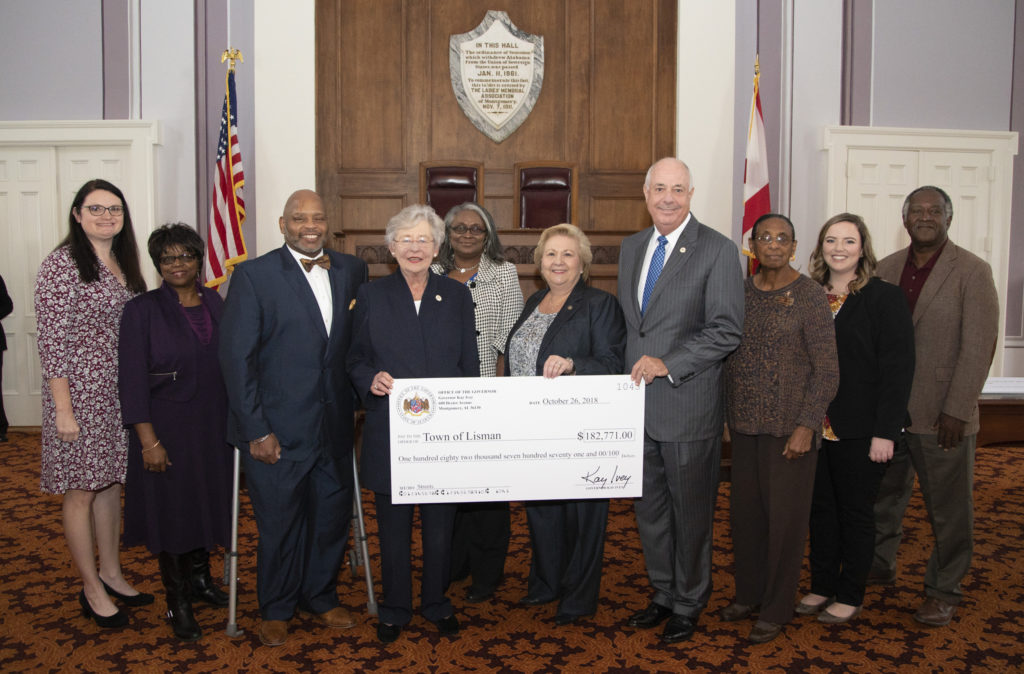
54 Alabama towns, cities and counties were awarded a total of nearly $17.8 million in Community Development Block Grants (CDBG) on Friday by Governor Kay Ivey. The 54 grants will support a number of community improvement projects including water and sewer extensions and rehabilitation, street and drainage improvements, housing rehabilitation and community centers. “The beginning of a better Alabama starts today for many residents who are without clean water to drink or safe roads to drive or suitable housing in which to live,” Ivey said. “I am pleased to award these grants to support vital community improvement projects, and I commend the dedicated local officials who sought these grants with the intent to make their communities better places to live.” CDBG are awarded annually through a competitive process in four main categories including small city, large city, counties and community enhancements. Other categories in this round include Black Belt and planning grants. Award determinations are based on the number of low and moderate-income families affected, urgency of the need and project cost efficiency. The Alabama Department of Economic and Community Affairs is administering the grants from funds made available by the U.S. Department of Housing and Urban Development (HUD). “As a former mayor whose city has been a recipient of CDBG awards, I can attest to how important this program is to our towns, cities and counties and the difference these grants can make in a community,” explained ADECA Director Kenneth Boswell. “ADECA is pleased to join Governor Ivey in the partnerships that it takes to make these grants come to fruition.” Those awarded grants, grant amounts and projects are: Small City Fund (Municipalities with populations of 3,000 or less) Beatrice – $350,000 for street improvements. Camden – $350,000 for water and sewer improvements. Carrollton – $350,000 for sewer improvements. Cherokee – $314,000 for street and drainage improvements. Detroit – $350,000 for water improvements. Falkville – $350,000 for sewer improvements. Luverne – $350,000 for water and street improvements. Millry – $350,000 for water improvements. New Hope – $350,000 for sewer and street improvements. Oak Grove – $200,000 for sewer improvements. Parrish – $350,000 for street and drainage improvements. Pisgah – $314,900 for water improvements. Rutledge – $350,000 for street improvements. Samson – $350,000 for sewer, water and street improvements. Sumiton – $350,000 for sewer improvements. Toxey – $350,000 for street improvements. Woodville – $350,000 for street and drainage improvements. Vredenburgh – $350,000 for street improvements. Large City Fund (Municipalities with populations of 3,001 or more) Andalusia – $280,000 for street improvements. Demopolis – $450,000 for sewer improvements. Elba – $450,000 for downtown revitalization. Eufaula – $450,000 for housing rehabilitation. Haleyville – $450,000 for sewer, water, drainage and street improvements. Hamilton – $450,000 for sewer, water, street and drainage improvements. Jacksonville – $429,713 for sewer improvements LaFayette – $450,000 for water improvements. Piedmont – $450,000 for sewer improvements. Roanoke – $359,487 for street improvements. Talladega – $450,000 for sewer improvements. Tuskegee – $450,000 for water and street improvements, and demolition and revitalization. County Fund (applies to 65 Alabama counties with Mobile and Jefferson counties receiving CDBG funds directly from HUD) Baldwin County – $350,000 for water improvements near the Lillian community. Hale County – $350,000 for water improvements in the Akron area. Madison County – $300,000 for water improvements east of Huntsville. Marshall County – $350,000 for street improvements on several county roads. Monroe County – $350,000 for water improvements west of Frisco City. Montgomery County – $350,000 for housing rehabilitation in Eastwood Villa. Sumter County – $350,000 for water improvements north of Cuba. Washington County – $350,000 for water improvement in the Fruitdale area. Community Enhancement Fund (municipalities of all sizes and 65 Alabama counties for projects addressing quality of life issues.) Akron – $250,000 for sewer improvements. Autaugaville – $250,000 for a new senior center. Barbour County – $250,000 for a new fire station in the Texasville community. Billingsley – $250,000 for town park improvements. Blountsville – $250,000 for sewer and street improvements. Blue Springs – $185,000 for water improvements. Butler County – $250,000 for courthouse renovations/handicapped accessibility. Cottonwood – $250,000 for street improvements. Dozier – $247,510 for demolition and clearance. Enterprise – $250,000 for demolition and clearance. Lauderdale County – $202,569 for a new senior center in the Greenhill community. Lisman – $182,771 for street improvements. Midway – $250,000 to convert a school into a community center. River Falls – $250,000 for street improvements. Black Belt Fund (municipalities and counties within a 12-county Black Belt region.) Selma – $450,000 for drainage improvements. Planning Fund (awarded to guide municipalities in orderly growth, revitalization or development.) Piedmont – $40,000 Skyline – $35,000
Kay Ivey announces grant to fund Alabama Drug Task Force

Governor Kay Ivey announced $64,054 in grants on Tuesday to fund additional support for The Alabama Drug Task Force. The task force, which began operations in October of 2017, lead by the Alabama Law Enforcement Agency, was established by Ivey to provide a concerted legal effort to reduce the impact of drugs and to dismantle drug organizations in the state. “My administration is committed to supporting the strong efforts of ALEA and law enforcement agencies across the state to take drugs off the streets and put offenders in jail,” Ivey said. “I commend these brave officers, who are united behind a single cause, for their dedication to make Alabama a better and safer place to live.” The total task force is comprised of more than 90 officers from over 40 agencies forming seven regional multi-jurisdictional offices. This grant boost will provide funding for a variety of purposes, including equipment and overtime pay. The funds were made available by the U.S. Justice Department, and will be administered by the Alabama Department of Economic and Community Affairs (ADECA). Within the first six months of operation, the task force made 146 arrests involving 312 drug cases, seized an assortment of illegal and prescription drugs and confiscated 145 firearms, according to ALEA. “The Alabama Drug Task Force is working tirelessly to improve the safety of communities across our state,” added Kenneth Boswell, ADECA Director. “ADECA is pleased to join Governor Ivey in supporting the efforts and operations of this task force.”
Kay Ivey appoints Enterprise Mayor Kenneth Boswell as Director of ADECA
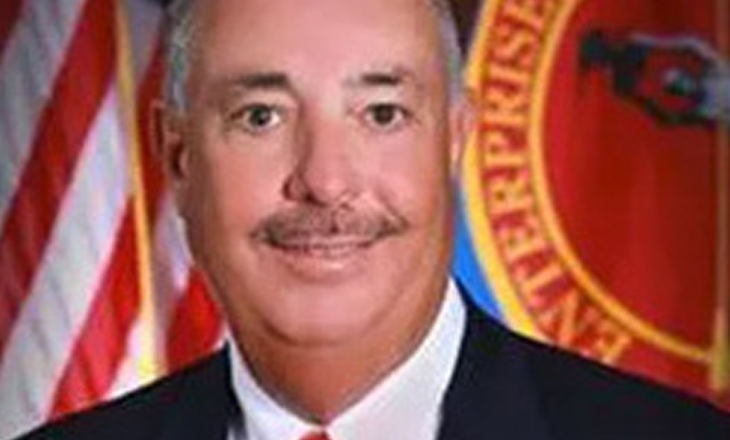
Gov. Kay Ivey appointed Enterprise Mayor Kenneth Boswell to be the new head of the Alabama Department of Economic and Community Affairs (ADECA) on Friday. Ivey’s action followed Thursday’s announcement that former ADECA Director Jim Byard was stepping down from the position. Ivey said she was proud to appoint Boswell to the position, “because he understands the needs of local communities and is fully committed to transparency and openness. His distinguished tenure as mayor shows that he understands the importance of leading local communities in economic development and he will be an asset to the people of Alabama.” “ADECA provides valuable support to our local communities, improving the quality of life of our people through overseeing important economic development projects, infrastructure improvements and job training, in addition to managing all federal grant dollars,” Ivey added. “ADECA’s mission is important to Alabama’s success.” Boswell served as Mayor of Enterprise since 2003 and was originally elected to the Enterprise City Council in 2000. During his time as mayor, Enterprise has been a hub of economic growth in Alabama. In 2014 alone, five companies either relocated to Enterprise or expanded their existing operations by investing more than $37 million while creating at least 545 jobs. “I am thankful Governor Ivey places trust in me to lead ADECA for the greater good and advancement of the state. I will bring to the agency the same work ethic and drive that I have given the City of Enterprise for the previous 17 years,” Boswell commented. “ADECA has significant responsibility, and I will see to it that the agency and its team work hard.” Boswell will officially begin on May 15, 2017.


